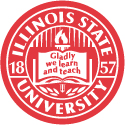
Shared University Governance
(Approved by the Academic Senate 3/21/79)
Illinois State University, founded in 1857 as the first state-supported university in Illinois, has had a long history of worthy traditions and accomplishments. Most of the practices connected with the administration and policy forming activities of the University have grown up gradually as needs developed. This is true with respect to the system for faculty and student participation in university governance, including the system of faculty-student committees. The general catalogs of the University reveal a steady growth in the scope and amount of faculty and student participation in the administrative and policy-forming activities of the University.
History of Shared Governance
In the early years of the University, this participation took the form of personal conferences. With the growth of the institution, a committee system was adopted as a more effective channel whereby faculty members could share in university policy-making, and whereby the administrative staff could have a systematic method of obtaining the ideas and advice of the faculty. Although faculty committees were listed in the University catalog for the first time in 1911, it is known that some existed before.
By vote of the faculty, the University Council was created, and its bylaws were adopted in 1951. From that time until 1970, the Council was the central representative agency for faculty participation in University governance. In the 1970 Constitution of the University, which was adopted by the faculty and students with approval of the administration and the Board of Regents, the Academic Senate was created as the primary governing body of the University.
In 1998, the new Board of Trustees approved a new University Constitution. A revision, which was approved in 2001, reflected membership changes in the Academic Senate. When creating policy that affects the academic area broadly understood, the President will seek the advice of the academic community through its principle representative body, the Academic Senate.
Senate Charge
Within the limits established by legislative statute and the authority delegated thereby to the Board of Higher Education and the Board of Trustees, the Academic Senate shall be the primary body to recommend educational policies of the University, including those described below, and to advise the President on their implementation. Policies recommended by the Academic Senate shall be forwarded to the President for consideration. The President may approve or disapprove them, amend them, or return them to the Academic Senate for further discussion before final consideration by the President.
The Senate shall:
- Recommend policy for:
- The admission of students to the University
- Degree requirements, and the procedures for inaugurating, changing, or terminating degree programs
- The annual calendar of the University
- The adoption and standards of educational and academic conduct common to all elements of the University community
- Intercollegiate programs and activities
- The evaluation of faculty members including academic administrators in connection with their appointment, promotion, remuneration, and retention
- Recommend policy with respect to student life and conduct.
- Recommend policy to insure the protection of the rights and privileges of the various elements of the academic community, and establish procedures for the hearing of grievances.
- Recommend policy and act on report of standing and ad-hoc committees of the Academic Senate. Standing Committees shall be established by the By-Laws of the Senate which shall delineate the composition of and the procedures of each committee.
- Recommend patterns of the academic community's self-government by exercising its authority to delegate responsibility to colleges or departments or committees.
- Participate in the formulation of:
- Capital and operating budgets and requests to be submitted to the Board of Trustees
- Long range academic plans including those to be submitted to the Board of Trustees
- Long-range plans for campus buildings and physical facilities
- The academic and administrative structure of the University
- Policies governing the terms under which individuals and groups can use University facilities for out-of-class activities
- Advise the President on any matter, at his or her request or on the initiative of the Academic Senate.
The Senate provides for the involvement of members of the academic community in its activities through a committee structure.

